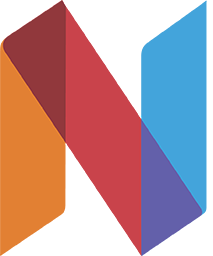Since Nfq was born, our innovation and technical capacity have been a differential part of our value proposition.
Technology has become a decisive factor in financial markets in the last years as a provision of service as well as a configuration of the company’s proposal.
Innovation from deep business knowledge
At Nfq, we don’t believe in innovation for itself: all our initiatives in this area are linked to business application.
We aren’t different only because we’ve a deep knowledge of new technologies. We are different for our capacity to bring this knowledge into products and thus giving real value to our customers.
Examples of the practical application of knowledge products and real services are collaborations with Universidad Carlos III in a Supercomputation project. Or our partnership with Universidad Politécnica de Madrid in the use-cases development about BlockChain applied to building the Smart Contracts for financial companies.
Development of our solutions is part of this differential vision. For example, QDos is a reputational risk measurement tool for financial entities which combine machine learning use with the social media information.
Open Innovation
At the same time, at Nfq we firmly believe that innovation, knowledge and its business application only make sense in a decentralised, open and collaborative model.
This is the main reason why we are collaborating with many start-up development projects like StartUp Grind or Tetuan Valley.
Study Areas
In RE[*], we are investigating and analysing the main areas that will transform the financial world full customer interaction flow.
Our innovation department is organised into 6 areas.
- Big Data, Information provision
Storage, management, and analysis of large volumes of data that cannot be treated conventionally, since they exceed the limits and capabilities of software tools usually employed.
- Data science, information analysis
Knowledge acquisition through exploration and exploitation of data sets by applying techniques and developing theories of multiple scientific fields. All this, with the aim of structuring data sets and optimally preparing them for the analysis phase.
- Artificial Intelligence, Automated decision making
Artificial Intelligence and Machine Learning (ML) include technologies such as Deep Learning, neural networks and Natural Processing Language (NPL). It may also encompass more advanced systems that understand, learn, predict, adapt and potentially operate autonomously.
- Distributed Ledger. Registration and information computations
The goal of this work group is to attain an appropriate understanding of each of the functionalities behind distributed account books. Also, to achieve the capability of developing solutions for auditory, chronology, intermediation and notarizing.
- Digital Banking and Startup, consumer interaction
The starting point would be the Fintech, i.e., start-ups expert in new technologies offering financial services. It is about exploring the new ways of creating applications for the communication of customer’s information.
- Architecture and Paradigms, the support of all operations
Creation of self-contained components that can be reused (that can be called multiple times by different applications). It is applied in the building of distributed systems. The different components may be in different machines according to the necessity of the application.
RE [*] is an open platform for collaborating and learning with our customers.
Why don’t we create something together?



